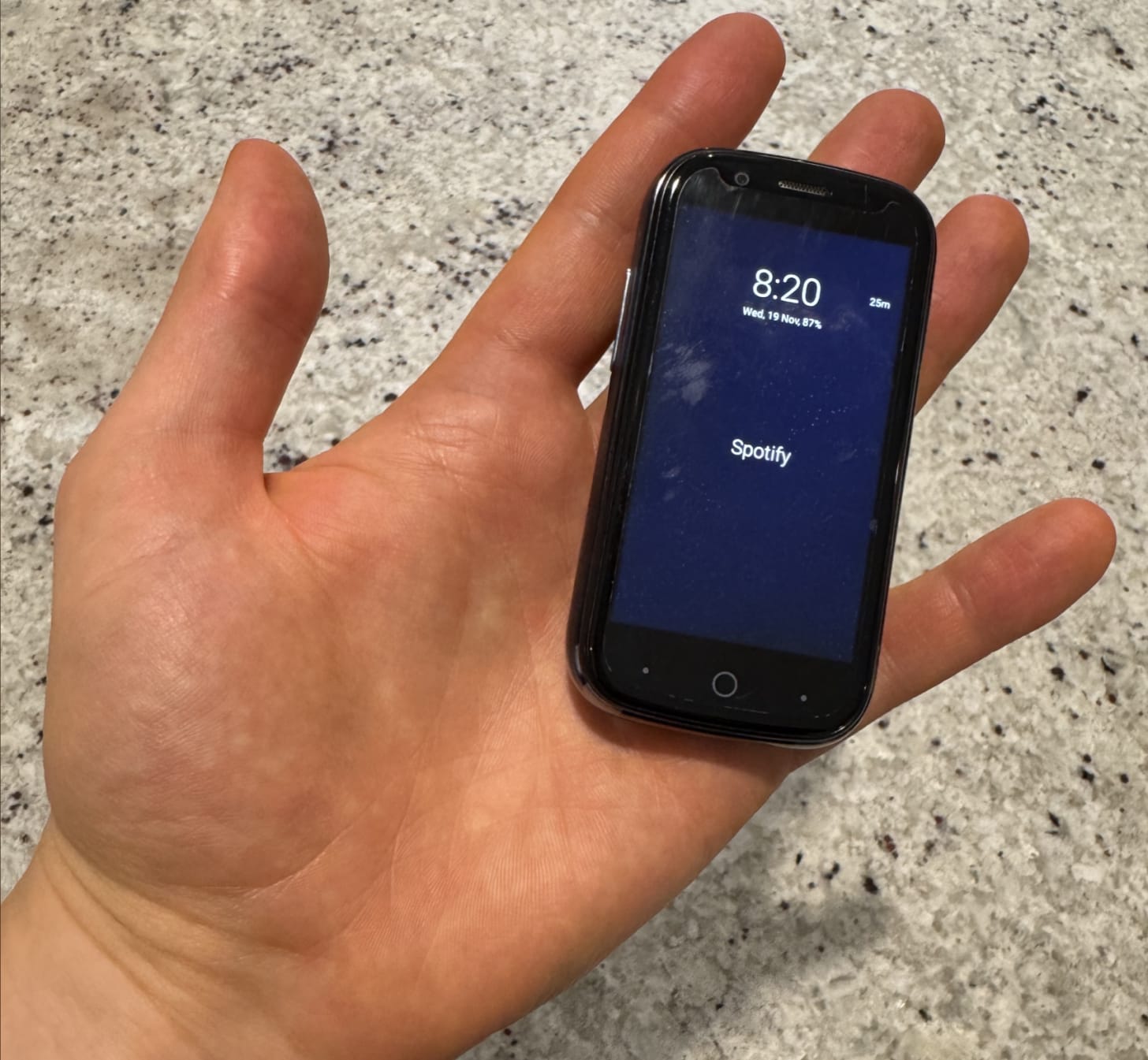The screen on my phone is about half the size of a credit card. I bought it to overcome my smartphone addiction, but discovered something far more interesting: People are utterly fascinated by it. So much so that there’s nothing about me or anything I’ve ever done that has gotten as much attention as my phone.
I used to be addicted to my smartphone, and it made me a worse person. My work was less focused and productive. I lost creative ideas because my phone stole those precious moments of boredom. And I was a worse friend - every time I reached for my phone, I signaled to the people around me that they weren’t the most important thing at that moment.
For many years, I tried to find a solution. First, I tried app blockers. That often worked for a few months, but eventually I always found a reason to turn them off (temporarily, I lied to myself). After realizing that app blockers would not do it, I bought a dumb phone. However, that did not last long either. Today’s society expects you to have a smartphone for basic tasks like transportation, meeting friends, banking and navigation. Once, I could not find a friend at the agreed location, and I could not contact them without WhatsApp. I also tried to wear a smart-watch without a phone for a while, but this was also too limiting.
For a while, I gave up on my quest for a solution. Until I met Esben, who carried a small phone (Jelly Star). Still a smartphone (Android), but very, very small. I immediately bought one and it has had the desired effect. The screen is so small that you don’t really want to use it. I’m, of course, very happy about this, but there’s another effect that unexpectedly has been even bigger - it is the best conversation starter ever.
It is impossible to convey how much interest I get from people around me when I pull out my phone. In my post-big-phone life, I have small conversations daily with strangers at all places where I have to show my phone. Whether I’m scanning my boarding pass at the airport, paying at the supermarket checkout, showing tickets at the movie theater, checking in at the doctor’s office, or mingling at networking events; every single time the phone comes out, a conversation begins. The funniest encounter was at the post office where the guy at the counter asked if he could hold the phone, then went to the back office with it to show all his colleagues. 10 minutes later he came back with it.
It is safe to say that nothing about me has ever interested so many people as my phone does.
I don’t think a single person has seen my phone without making a comment about it. The conversation always, always goes like this: Them: “What is that?” Me: “My phone. Yes, I know, it is small.” Them: “Why?” Me: “Because it is so bad that I don’t get addicted to it.” After this, they always stand frozen for a while with their jaw on the floor and a smile signaling reluctant admiration. I find that reaction very interesting. Let me tell you a fictional story to convey this reaction. Imagine two finance bros who compete to be the best during college, but lose contact after graduation. Twenty years later, they meet again. One is now a successful banker (who rarely sees his kids). He learns that the other, his previous rival, moved to Bali and worked in a surf shop. He stands frozen for a while with his jaw on the floor and a smile signaling reluctant admiration. Admiration because he realizes that’s the better path, but reluctant because he does not want to admit that to himself.
Similarly, people who see my phone know that their smartphone is not good for them, but they don’t want to admit it because they don’t want to give up the drug they are addicted to.
Most people stick to their drug, but some are seriously intrigued, so here is a short review of the phone for these people:
Typing is ok. Short messages, quick notes and search queries are no problem, but I always go to my laptop to write longer messages.
Two-finger zooming on maps is hard with such a small screen.
I use a third-party minimalist homescreen launcher. This makes the phone very laggy at times (I never had this problem with my previous Android phones).
Battery is ok. Worse than an iPhone, but you use the phone less so it is not an issue.
The camera is bad. I still take pictures to capture memories, but never with the expectation to get a beautiful picture.
It’s cheap (~$200).
Precise localization in Google Maps is bad.
Music listening is no problem. You can download Spotify and Bluetooth works. Even a headphone jack!
There’s a fingerprint sensor, but it is very bad. But remember, it is still a smartphone, so all apps on the Play Store work. This is a double edged sword - some willpower is still needed. It was named one of the top 100 best inventions of 2025 by Times Magazine, but I don’t really know why.
My life is much better without what today’s smartphones can offer. And since there is very little innovation here, with the yearly upgrades getting smaller and smaller, I don’t think I will ever use a normal smartphone again. Maybe some new type of device that replaces what we use the phone for today could do it, but until then, I’m happy with my Jelly Star.
Follow me on X or subscribe via RSS or Substack to stay updated.
Thanks to Sebbi Fodor, August Ereus and Esben Kran for feedback <3
.png)




